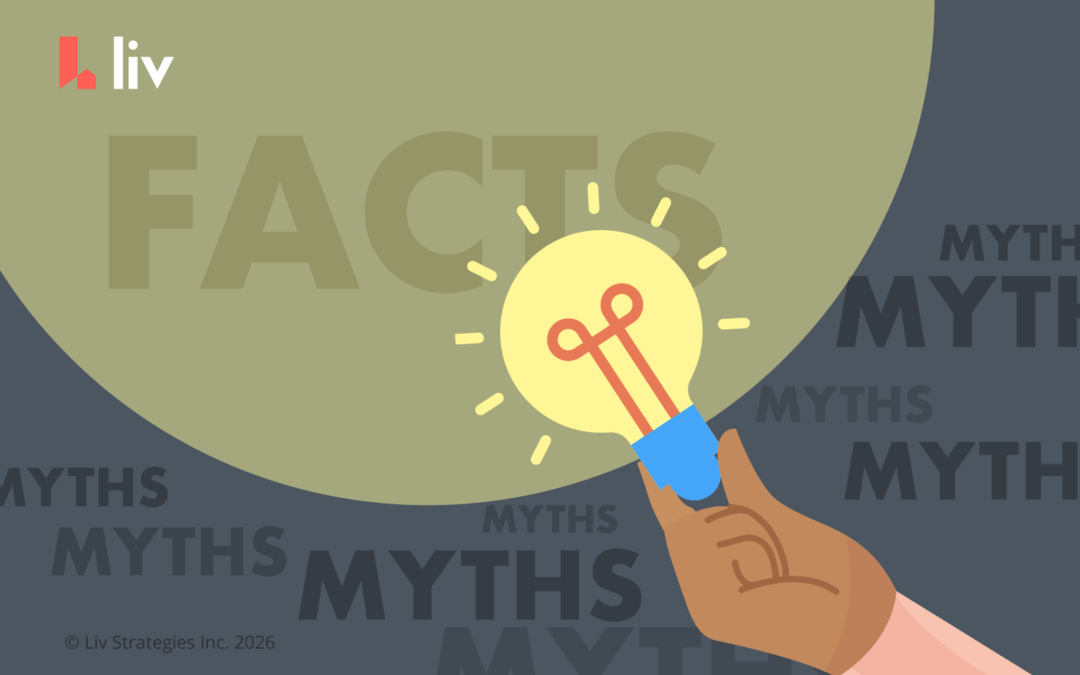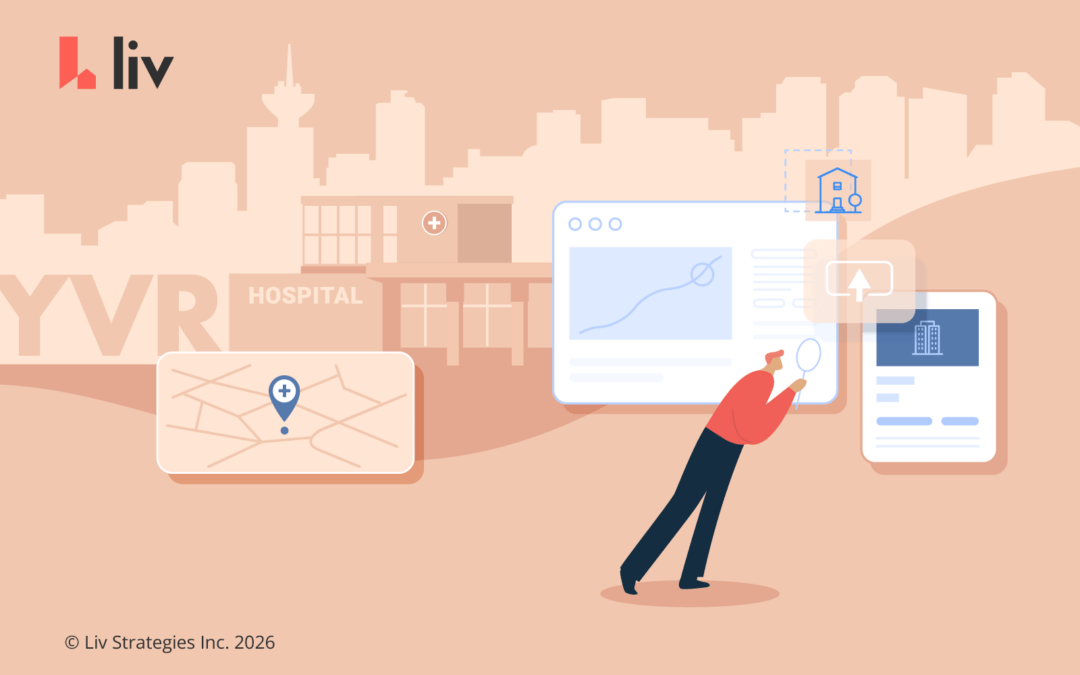Tax season has a way of sneaking up on us each year, and it’s never too soon to start thinking about how you’re going to file your taxes. Claiming your rental income as a landlord is a must, but are you making the most of the various expenses and deductions Canadian landlords are eligible for? And what can Ontario landlords specifically do to prepare? We’re liv.rent, and in this post we’ll cover everything you need to know about tax deductions for Ontario landlords, from eligibility to filing, answering all of your questions on the subject along the way.
Download The Landlord’s Guide To Property Tax Deductions
The ultimate tax guide for landlords in Canada. Everything you need to know about taxes, and how to get a bigger return.
Types of tax deductions for Ontario Landlords
Rental income tax deductions are the same for all of Canada’s provinces and territories. We covered the many deductions available to Canadian landlords in our B.C.-specific guide, but let’s recap quickly here as well:
1. Home insurance
The premiums you pay for your rental insurance can be claimed on your taxes. Claim the full amount if you’re renting out your entire home, or the appropriate portion if you’re renting out a partial home or unit.
2. Interest
Mortgage interest and any money borrowed for construction, repairs, or to finance your rental property itself can all be claimed on your taxes. If you refinance a mortgage on the rental property for personal reasons, the interest on the additional debt is not tax-deductible.
3. Costs
Some costs associated with the purchase of a rental property may be eligible for a tax deduction. Closing costs, fees related to obtaining a mortgage, and real estate lawyer fees are all expenses that can be claimed.
4. Property taxes
Ontario residents can claim their rental property taxes paid to their municipality (e.g. Toronto, Brampton, Oshawa), either for the entire property or the portion that is being rented out.
5. Utility fees
Landlords can deduct the entirety of their utility payments for a separate rental property, or a percentage according to the portion being rented. Eligible utilities include hydro, heat, internet, water, and cable.
6. Property management fees
If you’re paying a property manager, or a superintendent or property maintenance personnel, you may claim their salaries as deductions on your taxes. Note that this does not apply to the value of your own services to the rental property.
>> Recommended Reading: Do I Need A Property Manager?
7. Professional fees
Fees paid for legal services (e.g. preparing leases), accounting/bookkeeping, or collection agency fees are also eligible for deductions.
8. Travel
Travel costs are deductible only when they are reasonable and necessary for earning rental income.
- Travel must be primarily for managing or maintaining the property
- Routine local trips may be limited if they are considered excessive
- Meals and temporary accommodation may be deductible if travel is required for a property located a significant distance away
9. Advertising
You may deduct any costs associated with advertising your rental property, as well as any finders’ fees if you hired someone to secure a tenant.
10. Vehicle expenses
If you use a vehicle for rental activities, you may deduct a portion of:
- Fuel
- Maintenance and repairs
- Insurance
- Licensing and leasing cost
- Only the business-use percentage is deductible
- You should maintain a kilometre logbook to support your claim
- Capital Cost Allowance (CCA) may apply if you claim depreciation on the vehicle
How to claim rental property tax deductions
ADDED SECTION**
11. Capital Cost Allowance (CCA)
Capital Cost Allowance allows landlords to claim depreciation on the building portion of a rental property to reduce taxable income. However, any CCA claimed may be recaptured and taxed when the property is sold, and claiming CCA may affect eligibility for the principal residence exemption. Landlords should consider the long-term tax implications before claiming CCA.
**CONSIDER ADDING?
Short-term rentals (Airbnb, VRBO, etc.)
Short-term rental income must be reported, and compliance requirements have increased in recent years.
- If your short-term rental is not compliant with local municipal licensing or zoning rules, you may be denied expense deductions for the non-compliant period
- Rental platforms may share income information with tax authorities
- You may need to register for GST/HST if your short-term rental revenues exceed $30,000 annually
Thankfully, it’s easy for landlords and rental property owners to claim all of the deductions listed above. In fact, they’re included right within Form T776, which is the Statement of Real Estate Rentals, and is a form every landlord has to familiarize themselves with.
A list of potential expenses can be found on page 2 of this form, under Part 4 – Expenses. You’ll be prompted to specify the Total Expenses for each, as well as the Personal Portion. After adding these amounts up, you can calculate your total deductible expenses by subtracting the personal portion from your total expenses.
If you’re having trouble navigating your rental income taxes, be sure to consult with an accountant or tax expert to get more clarity.
>> Recommended Reading: VIDEO: Landlord’s Guide To Property Tax Deductions
Rental income deductions in Ontario vs. the rest of Canada
How rental income is taxed (Ontario vs. other provinces)
Rental income is governed by federal tax rules, but your total tax payable depends on your combined federal and provincial marginal tax rate. While the reporting rules are consistent across Canada, the effective tax rate varies by province based on where you reside.
For individual landlords, net rental income is added to your personal income and taxed at your marginal rate.
For corporations, rental income is generally considered passive investment income. In Ontario, passive rental income is taxed at a high combined rate of roughly 50%–52%, although a portion of this tax may be refundable when dividends are paid to shareholders through the Refundable Dividend Tax on Hand (RDTOH) system
Frequently Asked Questions: Rental tax deductions in Ontario
How much are you taxed on rental income in Canada?
As specified above, Canadian landlords are subject to income tax based on their own marginal tax rate. Corporations and businesses on the other hand must pay a rate of 38% in taxes on their rental income, in addition to a Provincial corporate income tax that varies by province. In Ontario, this number is 11.5%.
Is it worth claiming rental income deductions?
In short, yes! Depending on how much you’re making, rental income can be taxed heavily in Canada, so landlords would do well to take advantage of the various expense deductions available to them. The majority of these deductions are for services and expenses landlords frequently use, so capitalizing on these and reducing your taxes at year’s end is always a wise move.
How do tax deductions work?
Tax deductions are included right within the applicable tax form (Form T776, in this case), and simply need to be filled out alongside your income as a way of calculating the gross sum.
How do I avoid paying tax on rental income?
Canadians earning money from their rental property are obligated to report their income correctly and in full each year, so in that regard, you absolutely cannot avoid paying tax on your rental income.
You can, however, reduce the amount you end up paying by taking full advantage of the deductibles available to you.
What happens if you don't declare rental income?
If you neglect to claim your rental income during tax season, you run the risk of facing fines, criminal prosecution, or in the best case, a hefty tax bill later on.
Do I need to declare rental income if I'm not making a profit on it?
Renting below market value to family or friends
The CRA determines how a rental arrangement is treated based on whether there is a reasonable expectation of profit.
- If the property is rented at fair market value with the intention of earning income→ Report income and claim expenses normally.
- If the property is rented below market value for personal reasons (e.g., helping a family member or cost-sharing)→ The arrangement may be considered personal rather than commercial. In this case:
- You generally cannot claim a rental loss
- Expenses are limited to the amount of rental income received
- In some cases, amounts collected purely for cost-sharing may not need to be reported as rental income
Additional resources for landlords
Hopefully, this article provides some clarity on the vast and complex subject of tax deductions for Ontario landlords. If you’re still uncertain about any aspect of the rental income taxation process, or deductions specifically, here are some additional resources from both liv.rent and the Canadian government’s own tax documentation:
- The Complete User Guide To liv.rent For Landlords & Property Managers
- Rental Expenses You Can Deduct (Canadian Revenue Agency)
- Rental Income (Canadian Revenue Agency)

Rethink The Way You Rent
Not on liv.rent yet? Experience the ease of digital applications & contracts, verified tenants & landlords, virtual tours and more – all on one platform. Sign up for free or download the app.
Subscribe to receive the latest tenant & landlord tips and get notified about changes in the Canadian rental market.
>> Stay up-to-date on the average rent in Vancouver, Toronto and Montreal: Rent Reports.




0 Comments